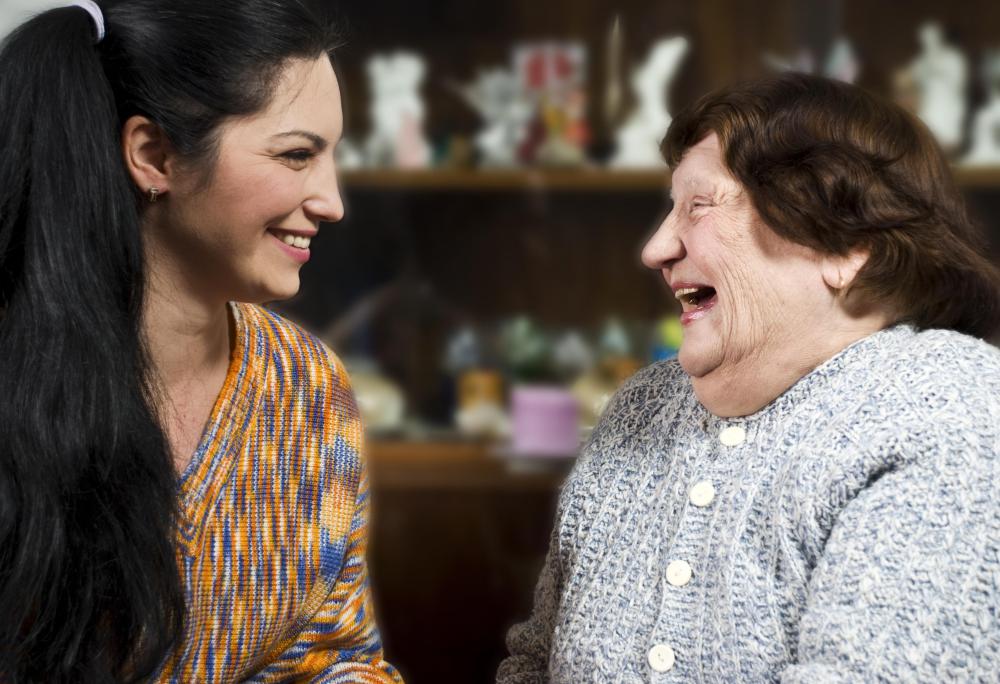At WiseGEEK, we're committed to delivering accurate, trustworthy information. Our expert-authored content is rigorously fact-checked and sourced from credible authorities. Discover how we uphold the highest standards in providing you with reliable knowledge.
What are the Best Sources of Victim Support?
Being a victim of a crime or act of nature is a terrible experience, often fraught with conflicting feelings and messages. Some people are told that being victimized is a sign of weakness, or that someone who feels psychologically damaged or afraid after a bad experience is playing into a "victim mentality." Finding positive and effective sources of victim support can be difficult, but many mental health experts insist that it is vital to a healthy recovery process. There are many different sources of victim support, and the most helpful will depend largely on the individual in the situation.
Some people who have been the victim of a crime or unfortunate situation find solace in group or private therapy. In private therapy, a person can discuss his or her fears, feelings, and worries with an experienced counselor that can help to craft a way through the troubles. It may be a good idea to find a therapist that specializes in the type of issue facing a client, in order to get the most out of this source of victim support. Group therapy allows a person to discuss his or her issues with others who have experienced similar situations. This can help some people feel less isolated and find hope in those who have survived the same situation.

While some sources of support are for psychological situations, others deal with the practical considerations following a crime or victimizing act. Most communities have local organizations that help provide shelter, medical care, and even financial assistance to those who have been victimized. These organizations are often situation-specific, such as a sexual abuse assistance program, a battered women's shelter, or local departments of human services. Sometimes, finding people who are able to help with basic needs can be greatly restoring to a traumatized person or family.

In addition to help with basic human needs, some victim support groups may help with legal issues as well. Some organizations provide access to legal experts and victim advocates, who can help a victimized person understand and pursue his or her legal options. If a person is a victim of a crime, it may be important to him or her to see the criminal stopped and brought to justice. Legal aid groups for crime victims can sometimes provide free or low-cost legal representation to help with this process.

Friends and family may or may not be a good source of victim support. Even for people with strong family ties and close friendships, it may be difficult or even feel shameful to explain a terrible situation. It is also important to remember that most friends and relatives are not trained professionals, and may have unhelpful or negative reactions in some cases. Often, though, friends and family can be of great emotional support and practical use, providing babysitting, help with housing or bills, and simply a chance to talk. Those who are uncertain of how to broach the subject with friends and family may want to chose the most trusted and reliable personal friend or relative, and ask for his or her advice on how to proceed with the rest of a family circle.

To find local sources of victim support, contact the regional department of human services or search for victim support online. Timely support can make a major difference in the recovery process, and experts often suggest that counseling start immediately. If a person is in a dangerous or abusive situation, the most important thing may be getting out of the situation immediately and getting to a safe location. Never underestimate the idea of simply going to a police station, as it can be a good source of victim support information and may be able to physically protect a victim or family from an assailant.
AS FEATURED ON:
AS FEATURED ON:

















Discussion Comments
It sounds counter-intuitive, but sometimes family and friends are the worst support, if they want to try to indirectly blame the victim. I'm a therapist and I see that all the time. The family means well, but they can't seem to allow their loved one the space and time to be angry, to grieve or do whatever they need to do in order to start the healing process.
My initial sessions with the families are often to ask the victim to leave the room, and then, in so many words, tell the family to knock it off with blaming the victim. The victim needs love and support, not a "shoulda, woulda, coulda" speech.
Most communities have mental health support groups, and some of the facilitators there will probably know about other groups for particular issues. Hospital chaplains are also often great sources for knowing about support groups and other support services. They see a lot of different people from many different backgrounds, so they're frequently in the know about resources available for people for nearly any issue. Many are also licensed counselors themselves and can make recommendations about the best kind of support someone should seek in a particular situation.
Post your comments